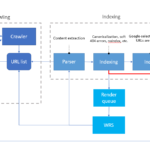Data Integrity
Written By :
Dr. Dhriti Tupe, GxP Expert ®
What is Data Integrity and Its Importance in Pharmaceuticals?
Data integrity refers to the accuracy, consistency, and reliability of data throughout its lifecycle. In the pharmaceutical industry, it is paramount as data serves as the foundation for research, development, manufacturing, and regulatory decisions. Any compromise in data integrity can lead to flawed research conclusions, unsafe products, and regulatory violations, which not only harm public health but also damage the reputation of pharmaceutical companies.
Why is Data Integrity Critical in Pharmaceuticals?
1. Regulatory Compliance:
Regulatory bodies like the FDA, EMA, and WHO have stringent guidelines around data management in pharmaceuticals. A breach in data integrity can result in non-compliance, leading to penalties, delays in product approval, or even product recalls.
2. Patient Safety:
Pharmaceuticals directly affect patient health. Accurate data ensures that drugs are safe, effective, and of high quality. Compromised data can result in the distribution of harmful products.
3. R&D and Innovation:
Reliable data is essential for successful research and development. From early-stage drug discovery to clinical trials and manufacturing, maintaining data integrity ensures that companies can innovate and bring new treatments to the market effectively.
4. Quality Control:
Pharmaceutical products go through various stages of testing and validation. Data integrity ensures that every stage—from raw materials to the final product—meets quality standards.
Handling Data Integrity
Maintaining data integrity involves adhering to practices that ensure the security, accuracy, and reliability of data. Here are some ways to handle it:
1. Adherence to ALCOA+ Principles:
• Attributable: Every piece of data should have a clear source and be linked to the individual responsible for its generation.
• Legible: Data should be clear and easy to read.
• Contemporaneous: Data should be recorded at the time it is generated.
• Original: Use the original source of the data rather than relying on copies or summaries.
• Accurate: Data should be free from errors.
• +Complete, Consistent, Enduring, and Available: Additional criteria ensure data is comprehensive, consistently recorded, and stored for future retrieval.
2. Automated Data Capture:
Minimizing manual data entry helps reduce errors. Implement systems that automate data collection, especially during manufacturing and testing, ensuring accuracy and reducing the risk of human error.
3. Audit Trails:
A robust audit trail logs every action taken on the data. This provides transparency and accountability, making it easy to trace back changes to the person responsible.
4. Regular Data Reviews:
Periodic data reviews by both in-house teams and external auditors help catch discrepancies early and ensure that data integrity is consistently maintained.
5. Data Security:
Implement strong security measures to protect data from unauthorized access or tampering. This includes encryption, access controls, and regular software updates.
How to Address Data Integrity Issues?
When data integrity issues arise, a swift and structured approach is essential:
1. Root Cause Analysis:
Identify why the breach occurred. This could involve looking at data handling procedures, software issues, or personnel mistakes.
2. Corrective Action:
Once the root cause is identified, develop a plan to fix the issue. This might involve improving data management systems, retraining employees, or introducing new security protocols.
3. Preventive Action:
Implement long-term solutions to prevent future issues. This could involve automating certain tasks, improving documentation processes, or upgrading technology systems.
4. Regular Audits:
Schedule periodic internal and external audits to identify potential vulnerabilities in data integrity early on.
Training New Employees on Data Integrity
Training new employees to understand the importance of data integrity is crucial for any pharmaceutical company. Here’s how to do it effectively:
1. Onboarding Programs:
New employees should receive formal training on data integrity principles, including ALCOA+ and company-specific data handling procedures. Training should include real-life case studies to emphasize the consequences of compromised data.
2. Hands-on Training:
Practical training with real-world data scenarios helps new hires understand how to handle, record, and review data in compliance with regulatory standards.
3. Mentorship:
Pairing new employees with experienced mentors ensures that they can learn best practices on the job, with ongoing guidance and feedback.
4. Continuous Education:
Data integrity regulations and technologies evolve. Ongoing training programs ensure that employees stay current with changes in regulations and technology improvements.
5. Performance Monitoring:
Implement systems to monitor how employees handle data. Regular reviews and feedback can help identify areas where additional training may be needed.
Summary
Data integrity in pharmaceuticals is essential to ensuring patient safety, regulatory compliance, and the reliability of research. By establishing robust data management systems, adhering to regulatory standards, and providing continuous training to employees, pharmaceutical companies can safeguard the integrity of their data, ensuring success and trust in the industry.
Written By :
Dr. Dhriti Tupe, GxP Expert ®
Quality Compliance Lead Mentor Ph.D. MBA LLS- MB, GB, BB LSS-Minitab LSS Expert-Harvard Publishing Case Studies LLS-Healthcare CQA and IRCA Certified ISO 9001:2015 Lead Auditor GxP Consulting Adviser Pfizer









